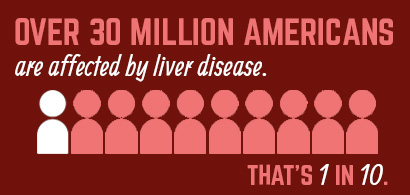The liver is a really important organ. Your liver processes everything you eat, drink, breathe, and absorb through your skin. It converts nutrients into energy for your body and removes harmful substances from your blood. There are a number of things you can do to maintain the health of your liver.
Liver Health Tips
1) Eat a healthy diet.
Limit processed foods and foods that
have a lot of sugar or salt. Incorporate lots of fruit fruits and veggies.
2) Limit alcohol intake.
Some of the byproducts of breaking down alcohol are toxic, so drinking too much alcohol can harm your liver. Moderate drinking is 1 a day for women and 2 a day for men.
3) Carefully manage your medications.
Taking medication incorrectly can harm the liver. Be careful that you read the label of your medications before taking, find out how your medications mix with each other, and if there is a specific way or time you need to take medication.
4) Avoid exposure to toxic substances.
Limit your exposure to toxins in cleaning products, aerosol sprays, insecticides and other chemicals, because your liver processes what you breathe and absorb through the skin.

If liver disease is left untreated, your liver may become so seriously scarred that it can no longer heal itself. This stage is called cirrhosis. Hard scar tissue replaces tissue that used to be soft and healthy. As cirrhosis becomes worse, the liver will have less healthy tissue. If cirrhosis is not treated, the liver will fail and will not be able to work well or at all.
Causes
Chronic Hepatitis C and alcoholism are the leading causes of cirrhosis. Some other causes include Nonalcoholic steatohepatitis (NASH), bile duct disease, and genetic diseases such as Wilson disease, hemochromatosis, glycogen storage diseases, and Alpha-1 antitrypsin deficiency.
Symptoms
In the early stages of cirrhosis, there are usually no symptoms. Over time as cirrhosis progresses and the scar tissue builds up, symptoms present themselves. Symptoms include:
- Loss of appetite
- Tiredness
- Nausea
- Weight loss
- Abdominal pain
- Spider-like blood vessels
- Severe itching
Treatment
Treatment options depend on the cause and level of liver damage. Once you’ve been diagnosed with cirrhosis, treatment will focus on keeping your condition from getting worse. It may be possible to stop or slow the liver damage. If cirrhosis can’t be treated, a liver transplant may be needed.
